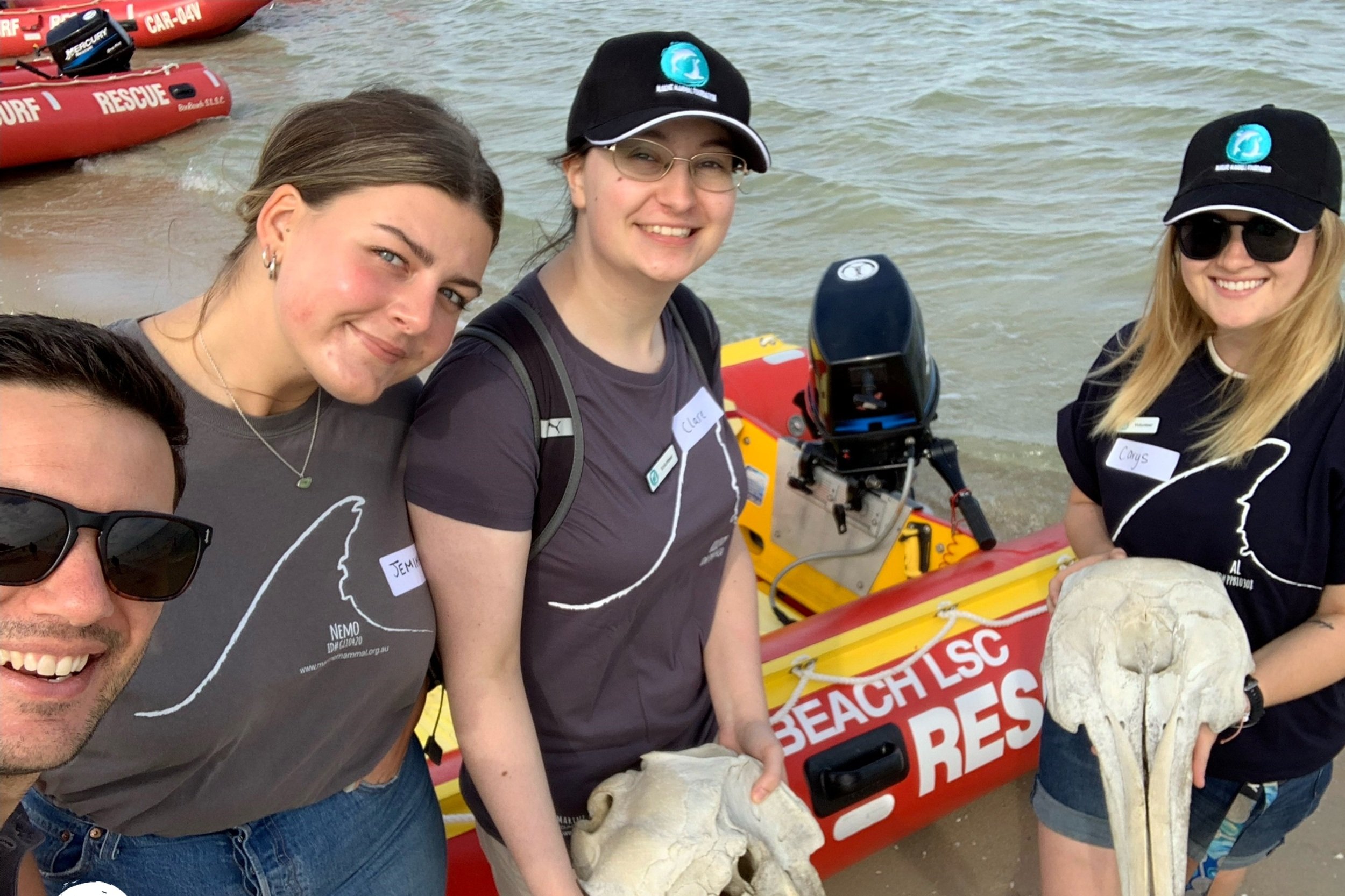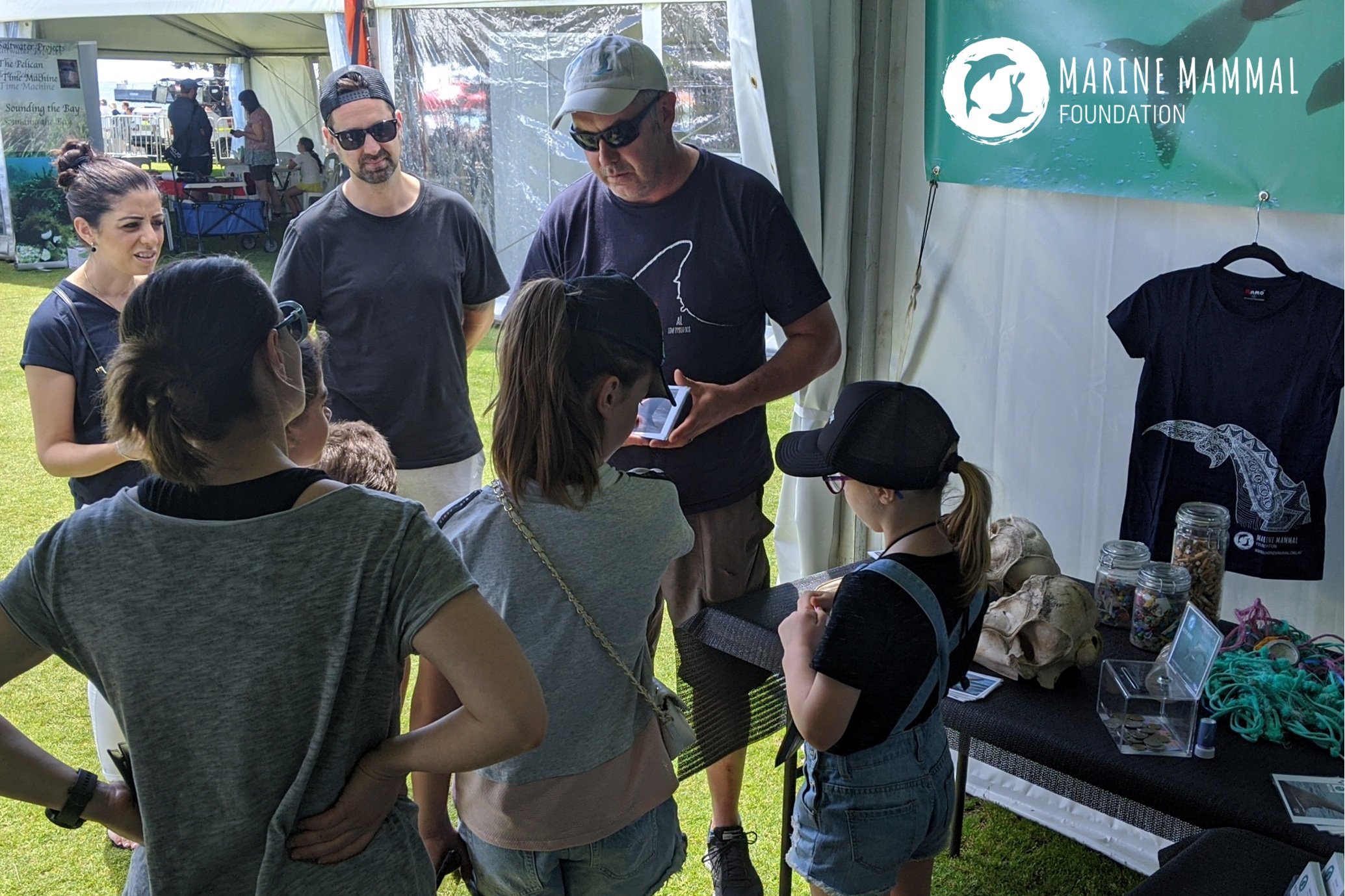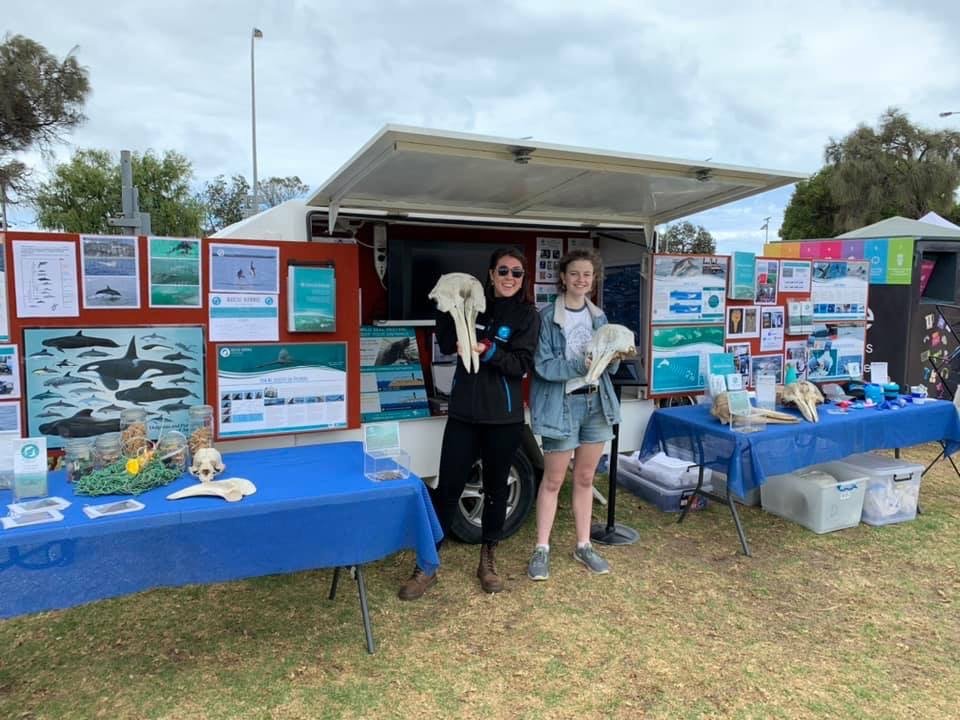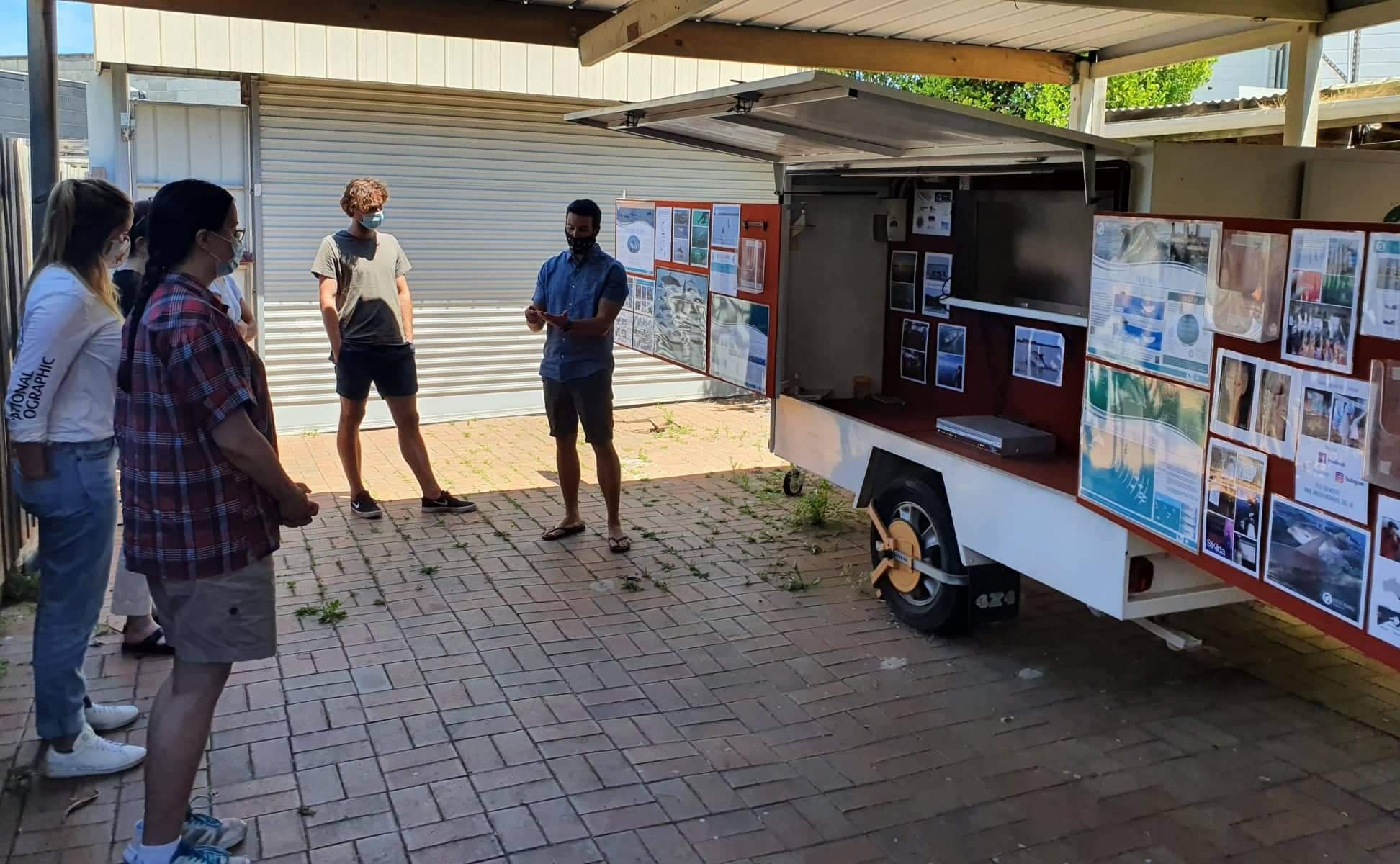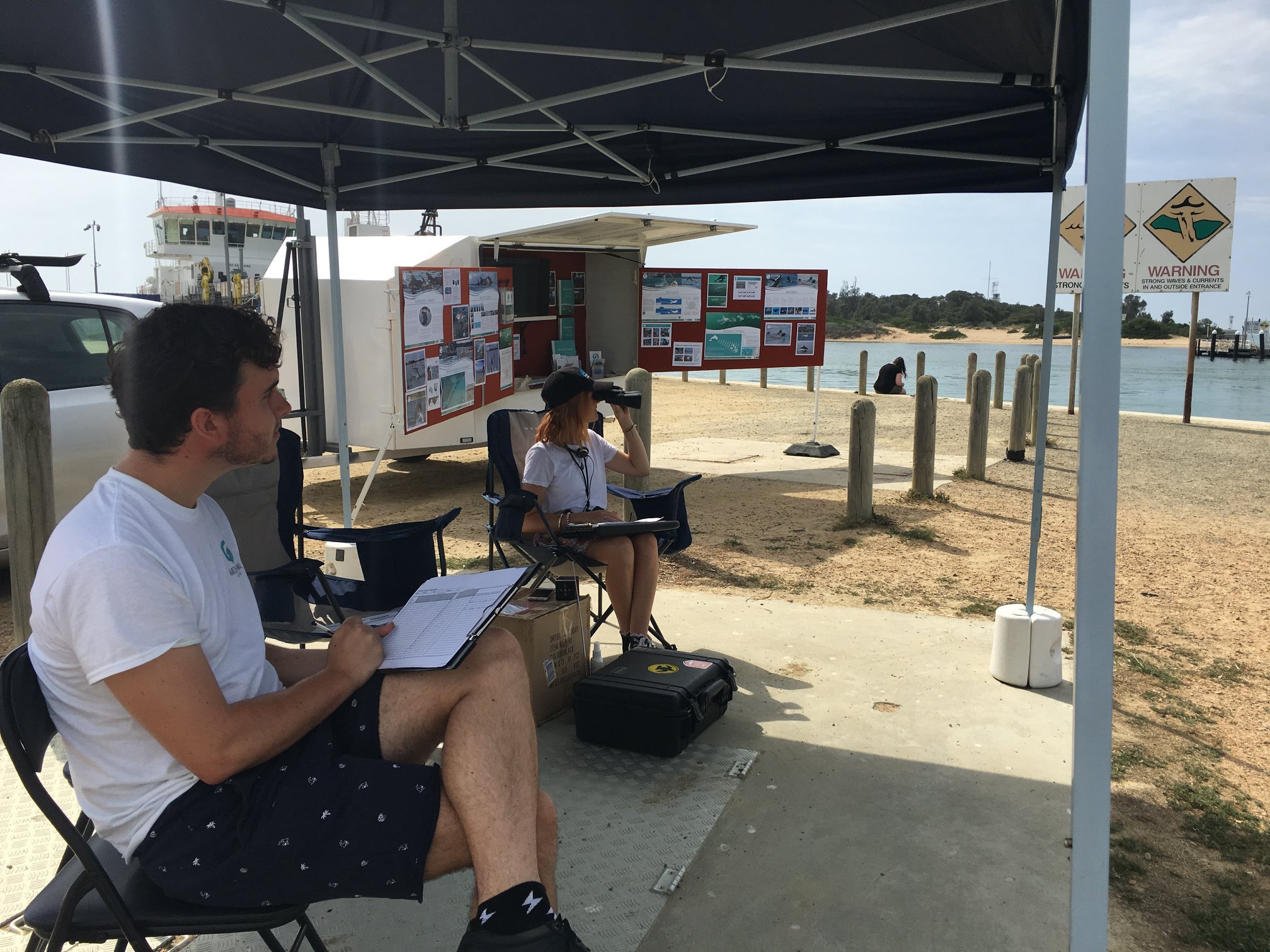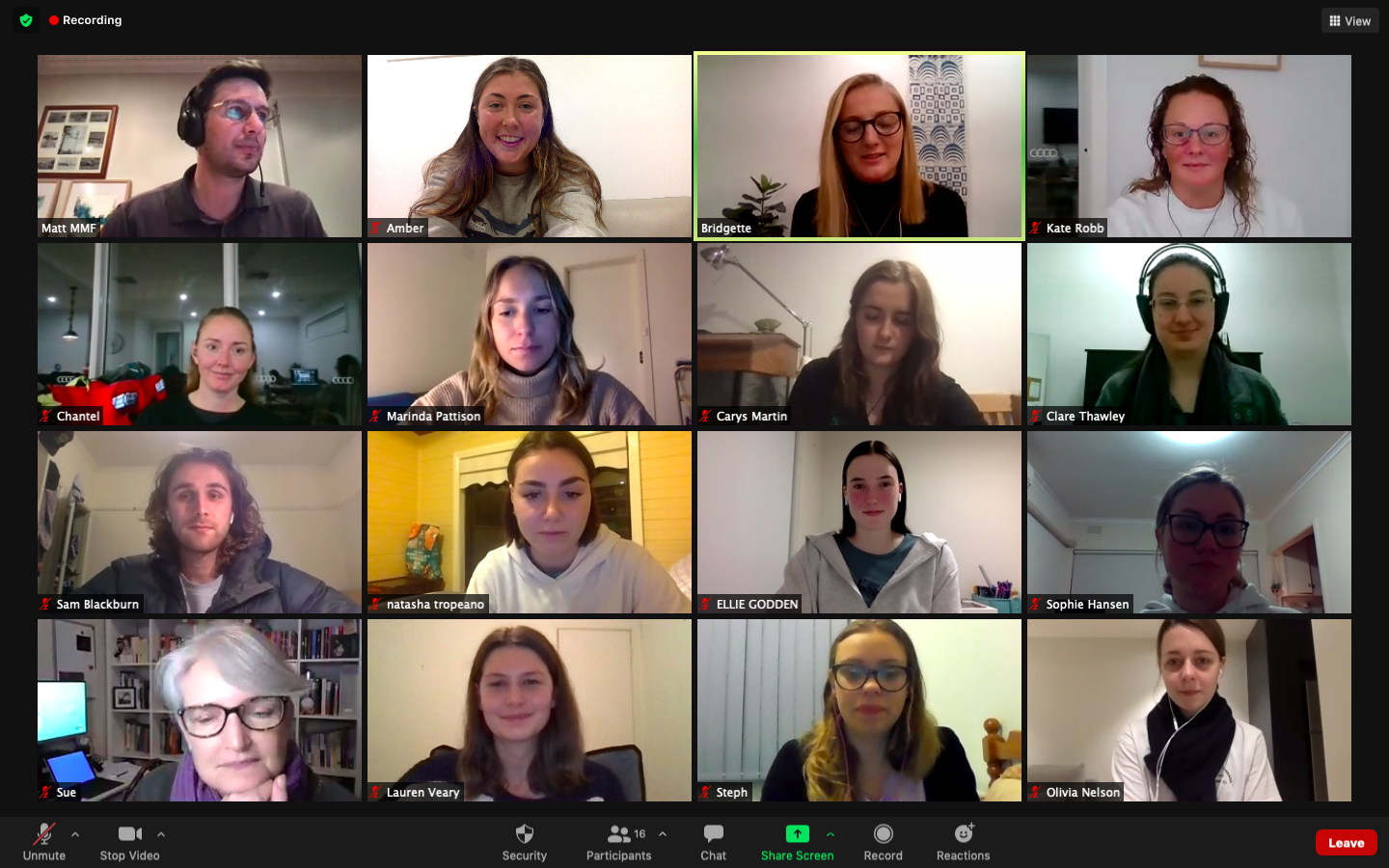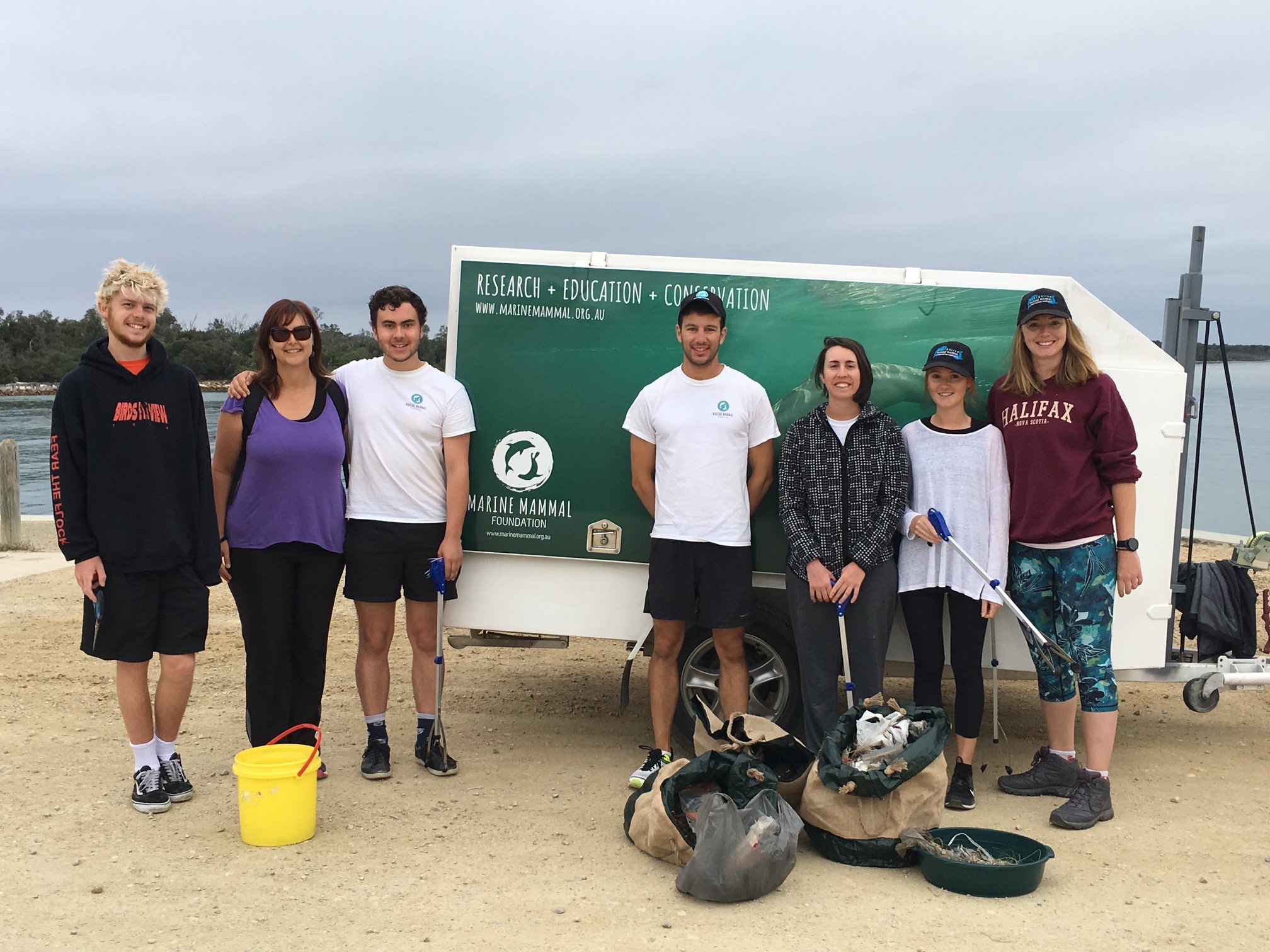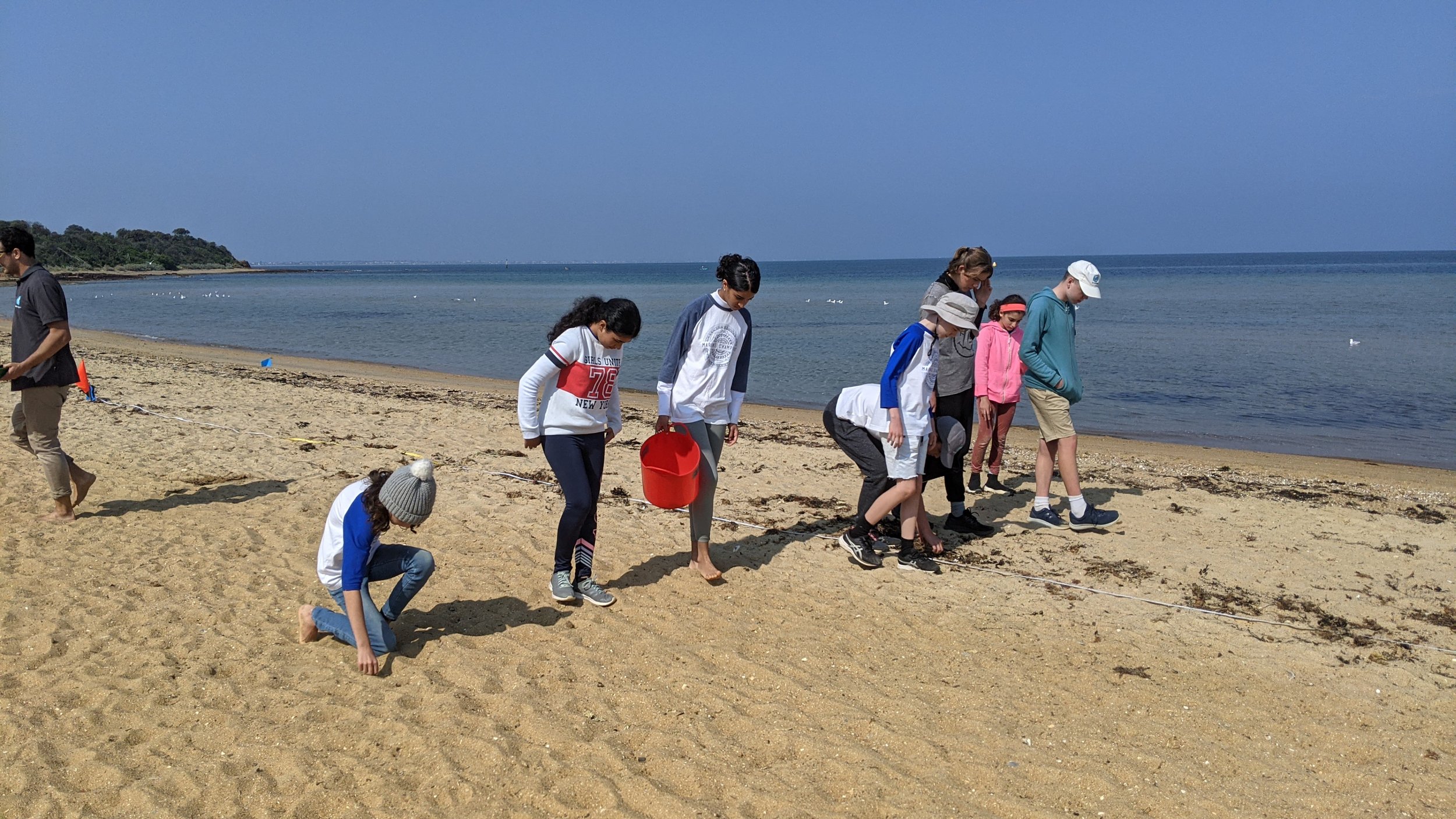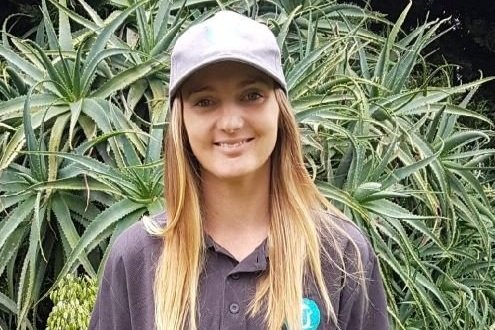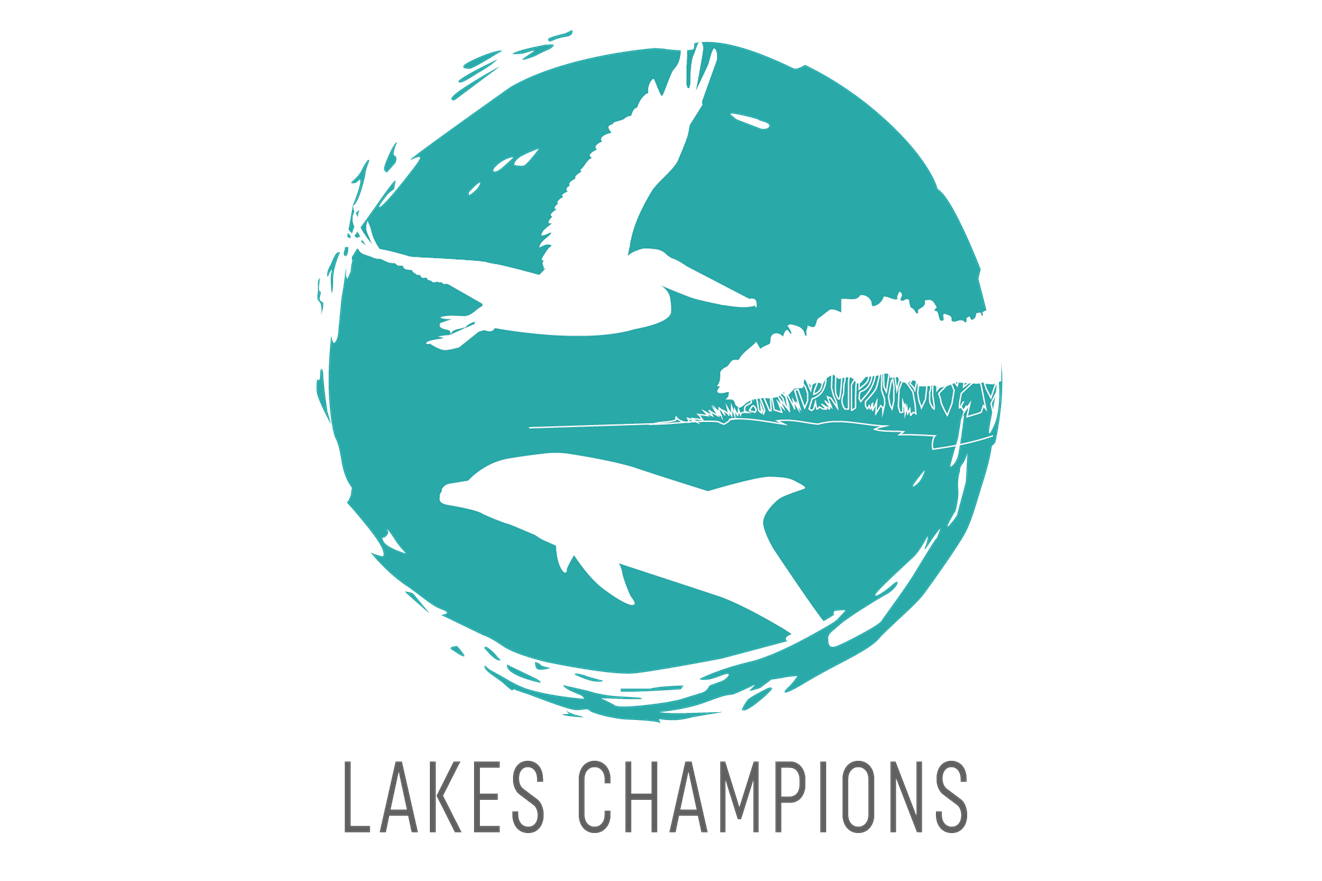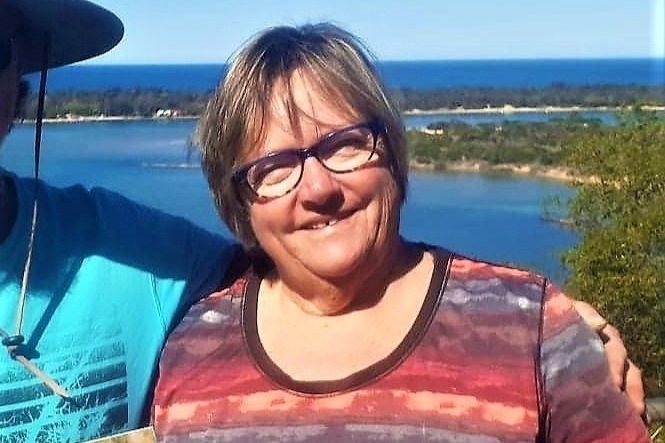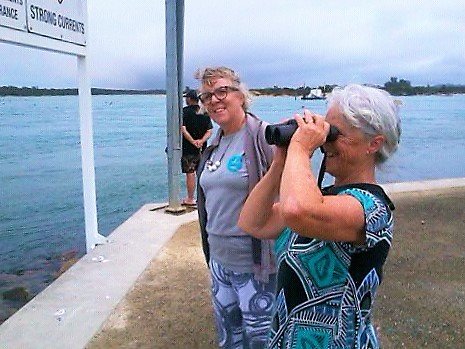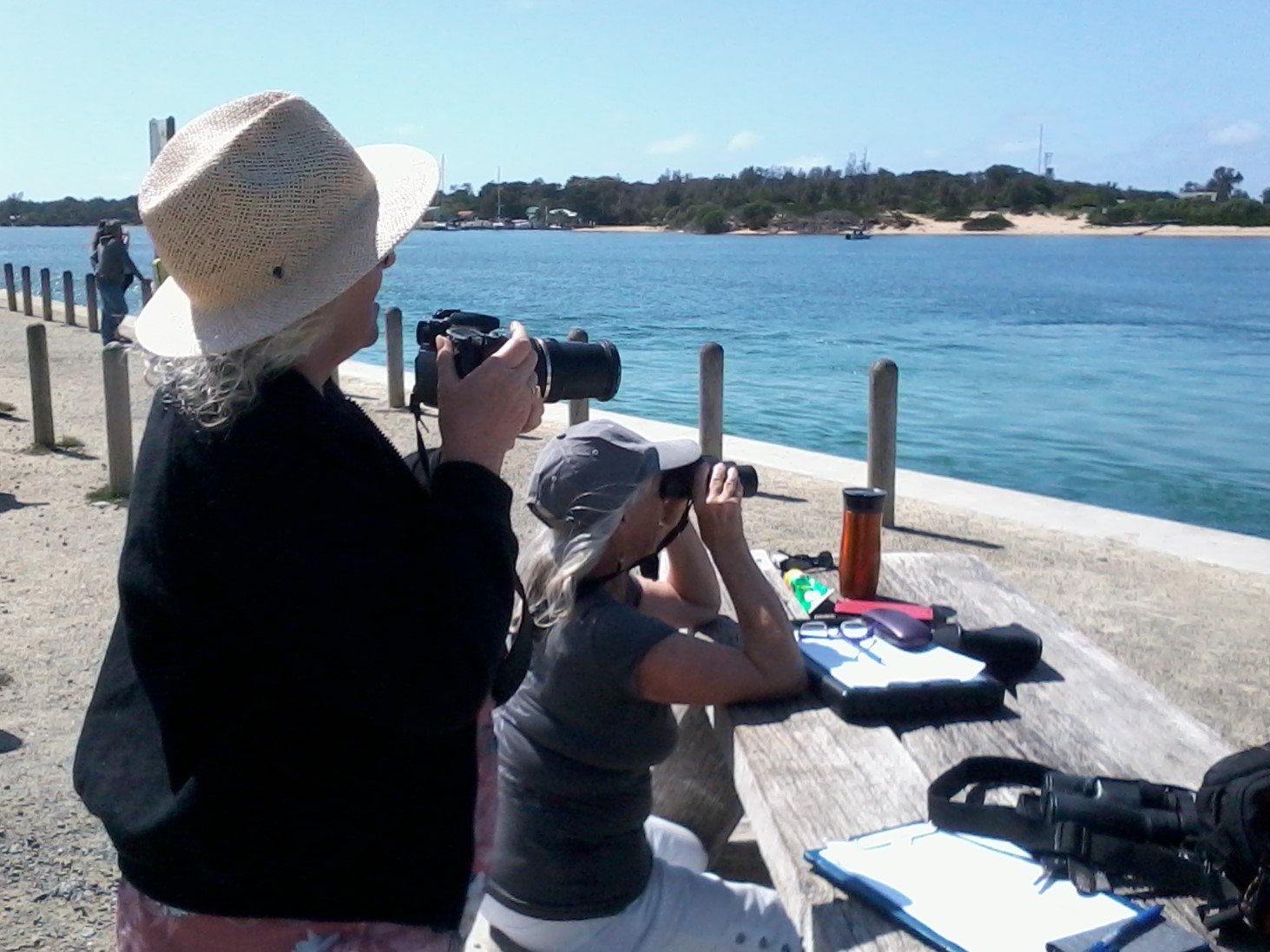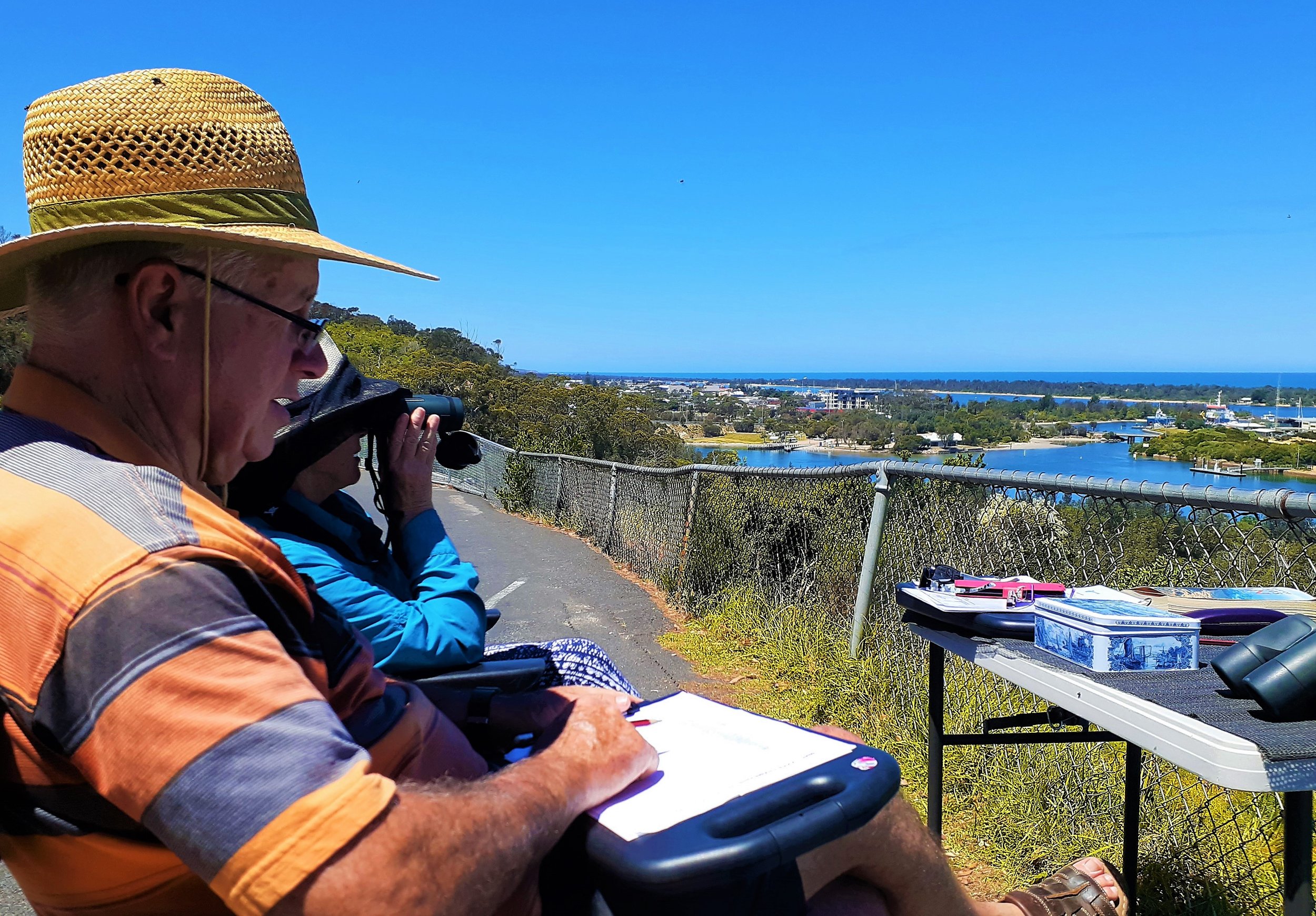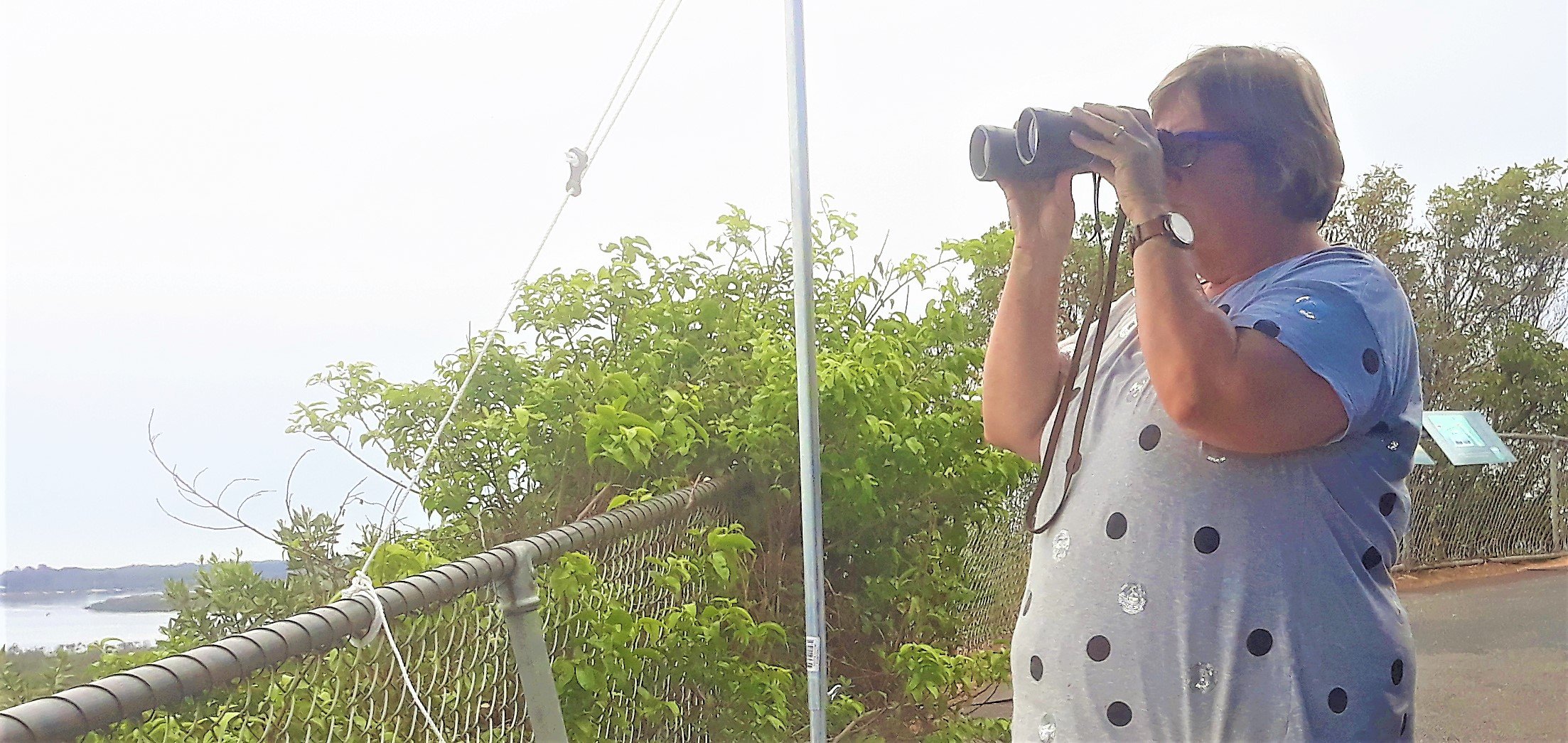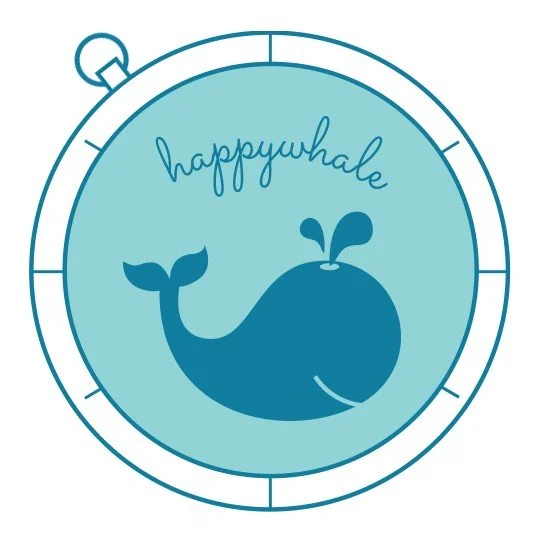National Volunteer Week 2022: citizen sceince makes us ‘Better Together’
Written by Holly Wilson, Marine Champions Leader
This week is National Volunteer Week, so in the spirit of celebrating volunteers, let's discuss an area of MMF’s volunteering program that works into our research efforts: citizen science! This year's theme is ‘Better Together’, and this certainly rings true to us at MMF. Let's explore!
What is citizen science?
Citizen science is the engagement of volunteers or amateur scientists in science and data collection, and generally includes a partnership with professional scientists. Did you know the practice of citizen science actually dates back to the origins of modern science? Before science became a profession in the late 19th century, virtually all science was conducted by amateurs, including illustrious figures like Charles Darwin! Nowadays, citizen science is increasingly utilised alongside professional research and in not-for-profit organisations all around the world.
While useful in many disciplines, citizen science is popular in ecology, as volunteers can help to tackle questions at larger scales than those achievable by researchers alone. For example, volunteers can help gather data monitoring biodiversity, ecosystem health, and population dynamics. These extra hands and eyes are vital as they increase the scope of field studies, that is, the size of the area a research project can cover, or the number of samples that can be taken. This can better alert scientists to changing trends and help identify where to focus further research. Think of bird watchers logging sightings of rare species in a database, or community groups monitoring water quality in their local area.
Although hugely beneficial, there are some risks associated with public participation in scientific research, and they must be appropriately managed to ensure data collection is accurate and reliable. As volunteers are not professional scientists there is a high potential for errors, biases or improper documentation of results without the right supervision or training. For example, an untrained eye may wrongly identify a species, log data in a messy or inaccurate way, or unknowingly survey the same area repeatedly.
Despite these concerns, studies have shown that with the right guidance citizen science can generate useful data contributing positively to the scientific community. To avoid these risks, it’s best for projects to have a standardised methodology that has been developed by the professionals and closely followed by volunteers. This includes rigorous protocols such as repeated sampling, strategies for reducing biases, tools to train observer skill such as use of quizzes and games, and mechanisms for the inclusion of data on observer quality.
As well as contributing to the scientific community, citizen science and volunteering are great for our mental health and wellbeing. Whether it's the fresh air (particularly after a few years of being inside), connection to community, improved self-esteem, or the sense of stewardship to the environment, participation in citizen science can be hugely beneficial. In fact, a recent study found that environmental volunteering was recognized by all participants to have heaps of positive benefits, including improving mental, physical and spiritual wellbeing.
Importance of volunteers at MMF
Here at MMF we are well aware of the benefits of using citizen scientists in our research. As a small non-for-profit organisation, volunteers and citizen scientists are a vital resource. Our Volunteer Coordinator, Bridgette O’Shannessy, oversees the activities of our enthusiastic volunteers.
We make sure our volunteers are involved in a number of areas of active research, as well as utilising relevant information that has been submitted by the public. Even though members of the public are not volunteering their time to collect data specifically for our purposes, their voluntary submission of information that is relevant to our areas of research is still a valid form of citizen science data.
While our volunteers can be involved in all areas of the organisation, including our education and outreach endeavours, current MMF volunteer work within our research areas include sorting Project Burrunan dolphin identification data, inspecting acoustic marine soundscape data, assessing Burrunan dolphin acoustic vocalisations, Gippsland Lakes Burrunan dolphin population data collection and vessel impact assessment, and in-field boat-based seasonal survey assistance. This volunteering work is dynamic and changes to match MMFs evolving needs.
With all this in mind let's celebrate some of the amazing volunteers and citizen science projects here at the Marine Mammal Foundation.
Lakes Champions - Burrunan Watch
The Lakes Champions are a group of East Gippsland local residents that are committed to assisting MMF with our research of the resident Burrunan dolphin population inhabiting the Lakes. They undertake regular land-based surveys of Lakes Entrance in a program called Burrunan Watch.
The program fills the gaps between the seasonal surveys undertaken by the MMF research team, with the Lakes Champions citizen science data allowing us to paint a more holistic picture of the ecology of the Gippsland Lakes system.
Volunteer members note the presence of any Burrunan dolphins, the movements of recreational and commercial vessels in the area, and any interactions between the dolphins and vessels, among other data such as environmental conditions. Lakes Champions Coordinator, Bron, oversees the scheduling of these surveys, the collection of data, and the reporting of raw data back to the MMF research team.
The ongoing Covid-19 pandemic has of course provided a number of interruptions to this program, but our volunteers tell us they’re looking forward to getting back into the routine of the surveys and the fulfilment of knowing they’ve contributed to the study and protection of a critically endangered iconic species like the Burrunan dolphin. The citizen science data the Lakes Champions provide is more important now than ever, with the impact of flooding events in East Gippsland heavily affecting the resident Burrunan dolphin population.
TrakMM
As much as we would love to be on the water all day every day scouring our watery backyards for marine mammals, the MMF research team can’t always have our eyes in the field. To maximise our understanding of the presence of marine mammals in Victorian waters, MMF has developed an online marine mammal sightings database for the community to report their sightings of marine mammals, adding to our overall sightings effort.
Along with a guide and gallery on how to identify different species, this form allows the public to report the presence of marine mammals like whales and dolphins. MMF then uses this information to help inform what species can be found in our local marine environments.
While the people that report these sightings are not dedicated volunteers working on a specific project, this information is still considered citizen science data as members of the public are voluntarily supplying information that can add to our active areas of research. To find out more, or to report a sighting of your own, visit: https://www.marinemammal.org.au/trakmm.
As well as directly helping out at MMF, there are many other examples of local citizen science projects. Let's dive into some of them now!
AUSMAP
The Australian Microplastic Assessment Project (AUSMAP) is a nationwide effort to quantify the microplastics load on Australian waterways. AUSMAP trains and certifies members of the public that are keen to get involved as citizen scientists so that the surveys they undertake are conducted properly and the data they collect is reliable. Currently there are over 400 trained citizen scientists that are certified to oversee AUSMAP surveys.
Using the data collected by this network of citizen scientists, AUSMAP aims to create a vivid heatmap of the microplastic pollution hotspots around Australia, helping communities identify areas that need attention, like implementing behaviour or policy change.
Happywhale
Similar to MMF’s TrakMM but on a global scale, Happywhale is another citizen science initiative aimed at increasing global understanding and protection of marine environments through public participation in conservation.
On their website you’ll find a whale identification tutorial and photography instructions to help improve sighting accuracy. Once you’ve spotted a whale (or any marine mammal) you can upload your photos and the Happywhale team will use their image processing algorithm to match photos with scientific collections.
Aussie Backyard Bird Count
If we focus our attention back to land, BirdLife Australia has many citizen science projects for novice to amateur bird watchers. Aimed at beginners, the Aussie Backyard Bird Count occurs every year for a week (this year it's 17–23 October 2022). This project takes place in your backyard, where you count any bird species you see for a 20-minute period. There is a nifty app to help you correctly identify species. The data collected assists researchers in understanding more about the birds that live where people live.
Citizen science really does make us “Better Together”
As you can see there are so many ways to get involved in science in your community! Citizen science allows researchers to achieve so much more than would be possible without a little extra help, and it’s a great way to give back to the community while helping your own physical and mental health.
We’d like to thank all of our volunteers for generously dotating their time, thier tireless hard work, and their ongoing committment to MMF’s conservation mission!

